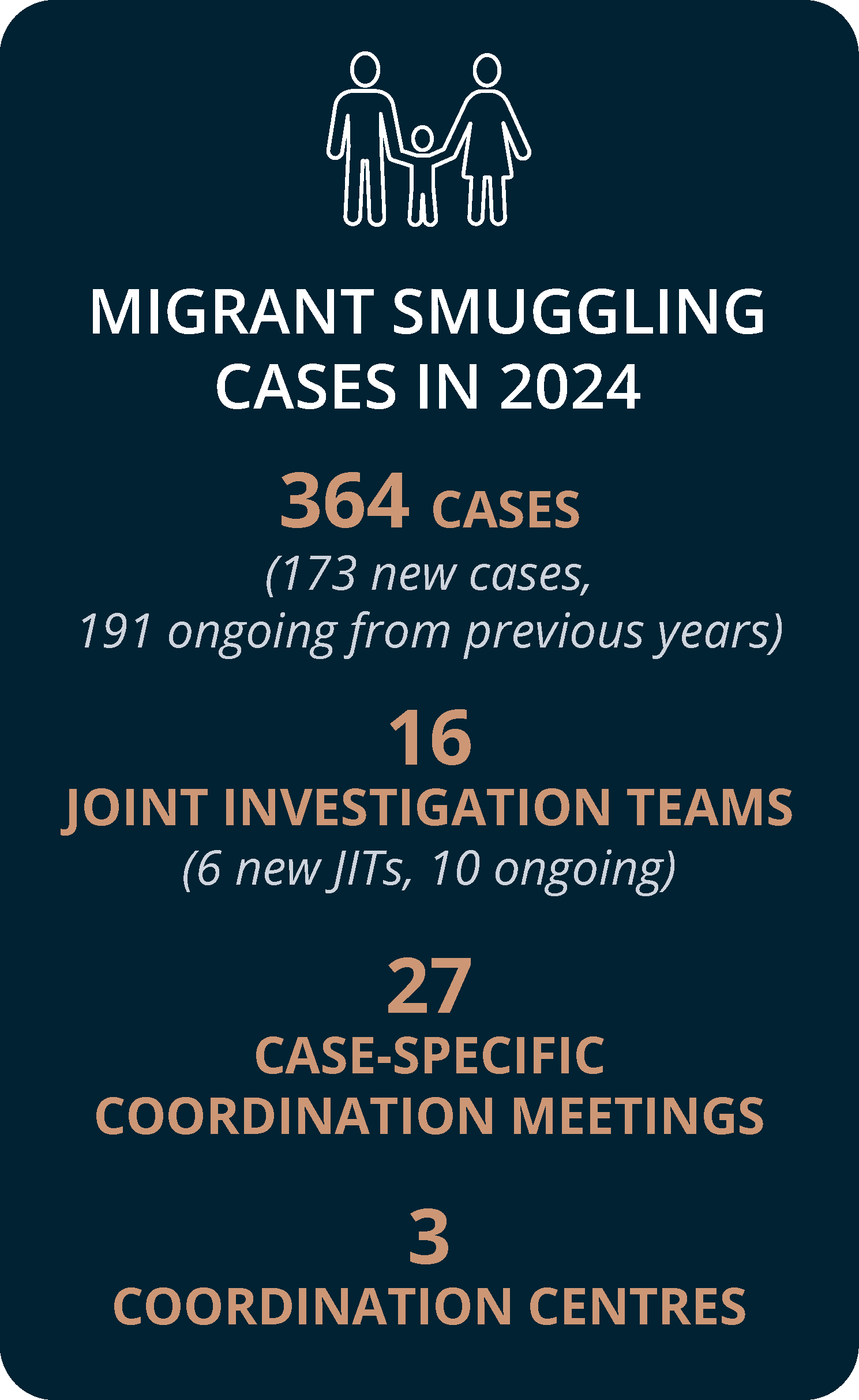Migrant smuggling is a global criminal activity that often disrespects human life and impacts EU internal security in the pursuit of profit. Smuggling networks, often part of organised multi-national criminal networks, frequently take advantage of migrants’ vulnerability, leading to violence, abuse, exploitation and loss of life. The use of the digital environment by OCGs to advertise, recruit, transport and collect payments is omnipresent in nearly every migrant smuggling case.
Eurojust’s operational support to migrant smuggling cases

For the first time in four years, the number of migrant smuggling cases, JITs and coordination meetings at Eurojust decreased in 2024. During the reporting period, the Agency handled approximately 15% fewer migrant smuggling cases, JITs and coordination meetings compared to the previous year.
National judicial authorities are encouraged to make more use of Eurojust’s support to cross-border investigations, in particular through JITs, coordination meetings and coordination centres.
Greece opened the largest number of migrant smuggling cases at the Agency in 2024, followed by Italy. Germany, followed by Bulgaria and France, was the European country most frequently requested to participate in Eurojust’s cross-border migrant smuggling cases in 2024.
Cooperation with third countries in migrant smuggling cases is vital but can be cumbersome. The presence of Liaison Prosecutors at Eurojust has greatly facilitated and intensified cooperation with these countries. Albania was the third country that initiated the highest number of migrant smuggling cases at the Agency in 2024. The United Kingdom and Serbia, both of which have Liaison Prosecutors posted at Eurojust, were the most frequently requested third countries to contribute to international migrant smuggling investigations.
Increasingly, digital evidence is playing an important role in migrant smuggling investigations, as OCGs use digital tools, online platforms, social media and encrypted telephones to offer their illicit services. This trend was very evident in Eurojust's 2024 migrant smuggling casework. In response to practitioners' requests for more support in so-called ‘digital migrant smuggling’ cases, the Agency developed a list of resources to assist judicial authorities in overcoming the obstacles they face in such cases (see key publication).
Another trend observed in Eurojust’s 2024 casework was a significant increase in the use of violence by OCGs against migrants, as well as law enforcement officers and border guards.
In 2024, the Western Balkans subgroup of the Migrant Smuggling Focus Group met to discuss key developments and concrete operational cases.

